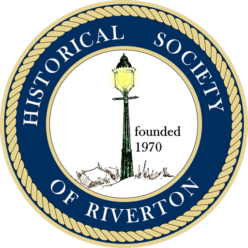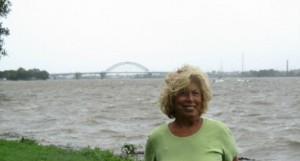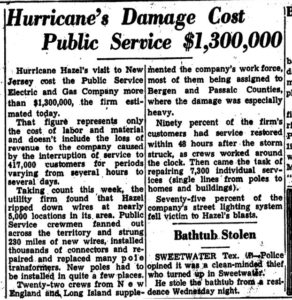
You may date yourself if you remember Hurricanes Hazel, Diane, or Gloria, but it is likely you or someone you know, can probably recall the effects of other tropical storms on our area.
Previously here, in August 2011, we reported on the effects of Hurricane Irene on our area. Only a year later, the Frankenstorm known as Hurricane Sandy resulted in the cancellation of classes for two days at Riverton School and pushed back the Palmyra Halloween Parade two days to November 1.
Time will only tell what effects this next hurricane has on our area.
Yesterday the National Weather Service upgraded Florence to a Category 4 storm, and governors of Virginia, North Carolina and South Carolina declared states of emergency. While a hurricane’s effects on New Jersey are rare, Hurricane Florence could bring its residual effects to New Jersey.
According to Newsweek, parts of the state may experience heavy rain, coastal flooding, and high surf as Florence’s tropical storm-force winds pound the shore.

Looking way back to September 1903, a hurricane dubbed “The Vagabond Hurricane” by the Atlantic City Press directly struck the state, making landfall on Atlantic City as an 80 mph hurricane.
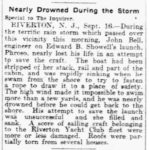
The September 17, 1903 Philadelphia Inquirer summarized the destuction sustained in New Jersey communities by that storm. It reported that the Vagabond Hurricane had damaged a score of sailing craft at Riverton Yacht Club and almost cost John Bell his life.
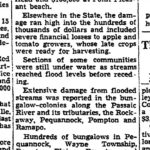
The western edge of the New England Hurricane of 1938 caused tropical storm-force winds and high waves on its way to landfall on Long Island. Storm surge along the Jersey Shore destroyed much of the boardwalk in Atlantic City.
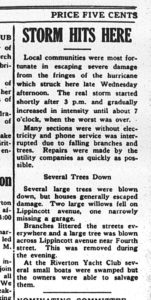
The path and ferocity of the Great Atlantic Hurricane of 1944 echoed effects of the 1938 storm and inflicted heavy damage to the shore towns on Long Beach Island, Atlantic City, Ocean City, and Cape May.

Riverton’s The New Era newspaper described the toll taken on residents’ shore properties by the storm.
During World War II, military meteorologists working in the Pacific began to use women’s names for storms. In 1953, the National Hurricane Center adopted the method for use on storms originating in the Atlantic Ocean. Meteorologists for the Atlantic Ocean began using men’s names in 1979. Names for hurricanes are chosen from a list developed by the World Meteorological Organization.
Names of especially deadly and destructive hurricanes, like 2012’s Hurricane Sandy, are often retired, and will not be used again.
If you remember a year for a hurricane but not the name of it (or vice versa), this historical list of hurricanes that affected New Jersey may help.
Finally, click here for nj.com’s 12 monster storms that rocked New Jersey.
Please share your recollection of a past hurricane’s effects on Riverton, and let us know how your neighborhood fares as we endure this latest tropical storm. Send text or photos to rivertonhistory@gmail.com or share a Facebook post to our Facebook page.
